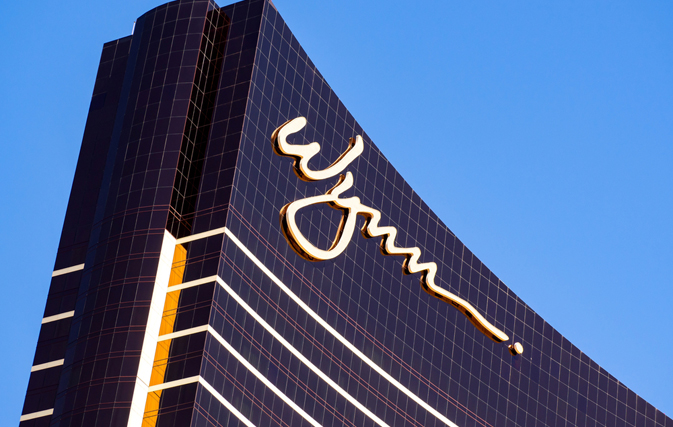LAS VEGAS — Imagine a white sand beach with a bar at the dock. Water skiers flash by a small island, where fireworks shoot from twin peaks. Now imagine this water paradise is in the desert of drought-stricken Nevada.
Casino magnate Steve Wynn can, though not everyone shares the vision of the man who brought dancing water fountains, pirate sea battles and an exploding volcano to adorn his previous Las Vegas gambling resorts. The plan is still in the design phase and hasn’t received final approval.
The Paradise Park development proposal unveiled by Wynn Resorts in April would be anchored by a 38-acre, man-made lake built where golfers now tee up on an 18-hole course. Wynn, the company’s CEO, said the park would be an amenity paid for by the resorts fee on hotel rooms at his Wynn and Encore properties, as well as a new 1,000-room hotel tower. Others would pay a $20 to $30 entrance fee to enjoy the festive “lunacy.”
At the size of nearly 100 Olympic swimming pools, the lake is billed as a more conservative use of water for the resort.
“Paradise Park is … taking advantage of imagination and fantasy on property that we own for zero (dollars), with water rights that we own for zero _ and we’re the only ones that have them at this size,” Wynn said on a May 5 earnings call. “And we’re going to do it with solar power, and we’re going to use less water than a golf course, so we’re going to be very green at the same time.”
But some are skeptical about the project’s environmental claims, questioning rates of evaporation at the project, and the ethics of such unnatural water use at a time when drought has parched the West.
“Artificial lakes we should think very hard and long about before we start to expand to that,” said Dale Devitt, a soil and water scientist at UNLV and the director of the Center for Urban Water Conservation.
But Devitt also said there’s no right or wrong when it comes to a community’s economic consideration for using resources, whether it be golf courses and man-made lakes for tourism or farming for food and income.
The Southern Nevada Water Authority estimates the golf course uses about 700 to 800 acre-feet of water per year and the new lake alone would use about 300 to 400 acre-feet per year. One acre-foot of water is about enough to serve two average Las Vegas homes for more than a year.
Should the golf course be halved into a nine-hole amenity as renderings seem to show, the water authority projects the new lake would use about the same amount of water as is consumed now.
In comparison, the popular Fountains of Bellagio water feature – also built by Wynn – uses an estimated 50 to 60 acre-feet of water per year, according to the water authority.
The company owns the water rights on the property, and its use isn’t monitored by the water authority.
“It’s water neutral – at worst water neutral,” Wynn spokesman Michael Weaver said. “We believe it will be better.”
Wynn representatives cautioned the final plans still need to be reviewed and approved by its board of directors, likely in the fall.
The lake would be built using water technology from Crystal Lagoons US Corp. The Miami-based company’s CEO, Uri Man, said that by his estimate, the lake would use far less than what the water authority projects. Rejecting the science suggesting high evaporation loss for an open body of water in the desert, Man said the proposed lake will use about 123 acre-feet of water per year thanks to its use of additives that will create an invisible, safe-for-contact layer of film on top of the water’s surface that will significantly curb evaporation loss.
“We’ve developed evaporation controls that lowers (evaporation by) 40 to 60 per cent, depending on the location,” Man said.
Devitt said evaporation loss for an open body of water is about 20 per cent higher than the base rate for Las Vegas. Evaporation loss for the type of grass generally used for golf courses, meanwhile, is about 30 per cent lower than the base rate.
Crystal Lagoons’ claims were met with skepticism by David Groenfeldt, an anthropologist who studies water ethics as director of the New Mexico-based Water-Culture Institute. He said the concept of evaporation control sounded implausible if not outright magical.
Groenfeldt said that while Paradise Park is not necessarily unethical because it’s not expected to use more water than before, it may be perceived as an excessive attempt to control nature in a time of need.
“It’s like when you’re living on borrowed money and you’re buying a Ferrari and you keep borrowing and borrowing,” Groenfeldt said.
